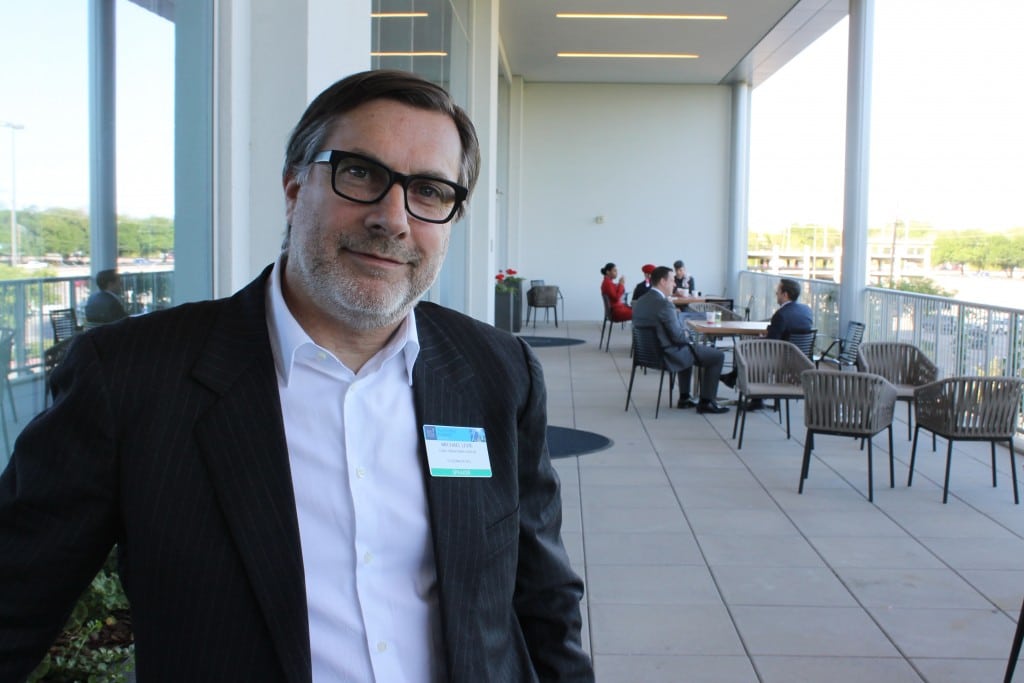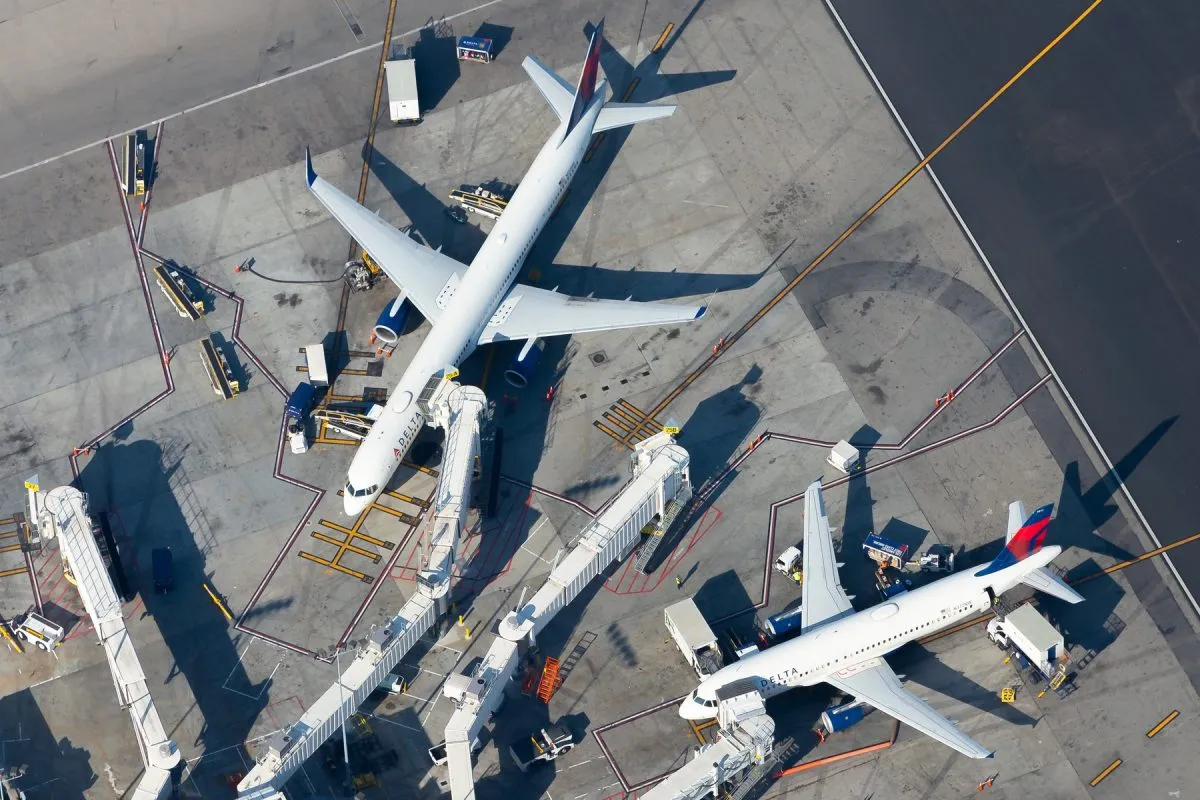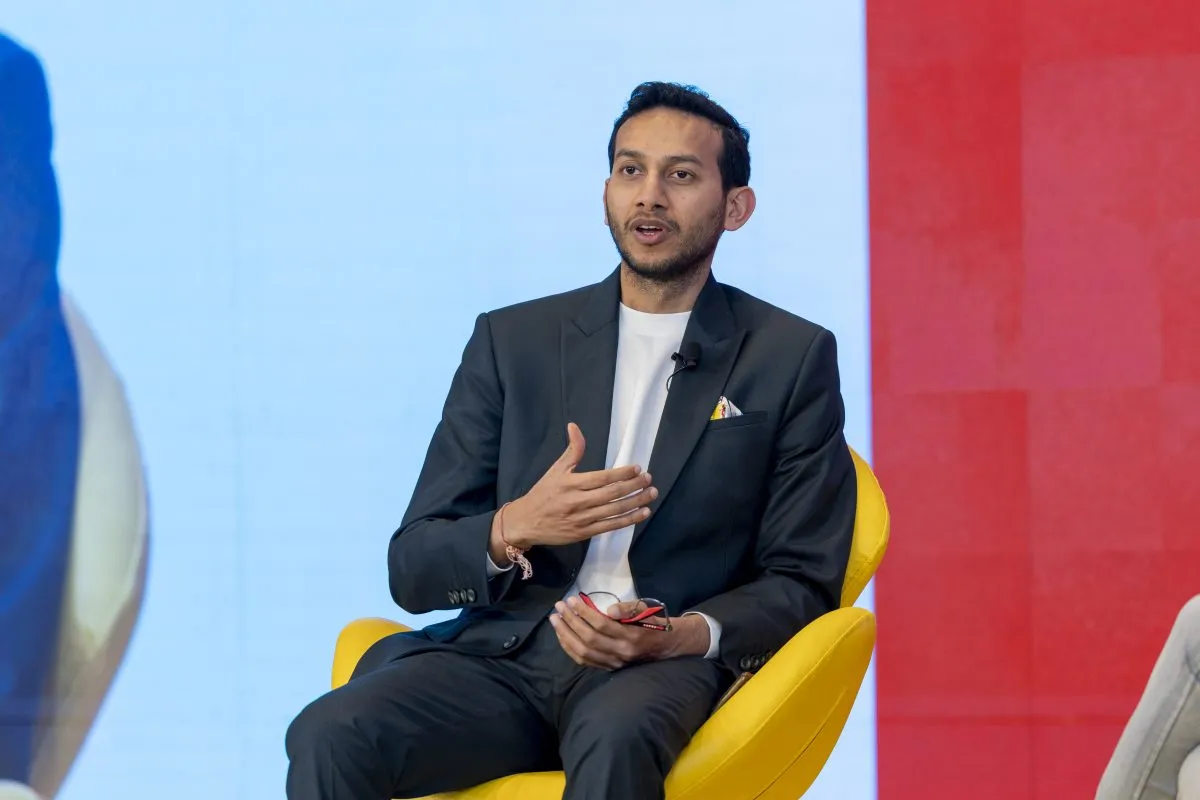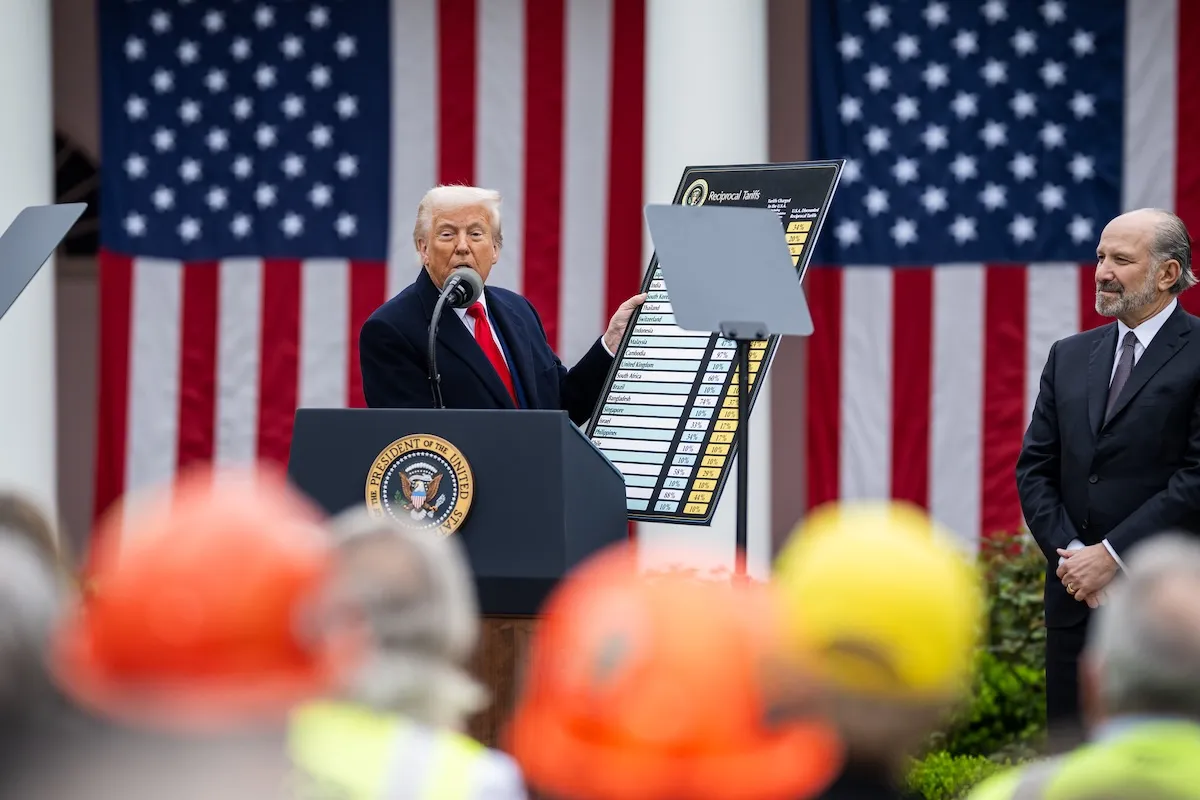Interview: CitizenM Hotels Co-Founder on Making a Stay an Extension of Guests' Lifestyles

Skift Take
Walk into any citizenM hotel and you'll feel like you're in a living room rather than a hotel lobby. Kiosks replace front desks and bookshelves, fireplaces and large plasma TVs are positioned to get guests out of their rooms and into the common areas citizenM calls "living spaces."
These features are typical of a boutique or lifestyle hotel but the way citizenM uses technology in these spaces creates an experience that's difficult to find elsewhere. Founded in 2005, CitizenM has seven properties in the U.K., Paris, Amsterdam and New York City, with 17 more hotels in the pipeline.
Michael Levie, co-founder and COO of citizenM, said he founded the hotel to give a niche market what it needs. That niche is travelers who are "mobile citizens," those who are seemingly always on the road and using mobile technology. Tablets in guest rooms, for example, let guests control TVs, lighting and music and surf the Web.
Levie said he uses an analogy about Tesla Motors to draw parallels to how he views his hotels in the context of the larger hospitality industry.
"I often ask people, 'Is Tesla a car?'" said Levie. "It has four wheels. It has a steering wheel. It's transportation."
"I agree with people who say 'Tesla is not a car' because what I think what Tesla has done is the commodity that it was -- transportation in a car -- they have transformed that industry by taking a different approach to it. The business processes that were underpinning that industry are changed forever. Now all of a sudden everybody produces electric cars. But they're hybrids and they promise you this, but they're still electric cars."
Skift recently sat down with Levie to talk about how he built his brand around technology, how data-sharing has helped improve the guest experience and how the travel industry needs to encourage college education for staff.
Skift: The first citizenM Hotel opened in Amsterdam's Schiphol Airport in 2008. What's your take on the current state of the boutique hotel sector and how it's evolved during the past decade?
Michael Levie: People are living a lifestyle because they're part of that lifestyle, they feel most comfortable in that lifestyle. That happens going through all facets of life. When you travel you will look for something that fits your lifestyle.
In the past people traveled and they were inspired by the places they stayed at. Hotels were like the wow and ah because "Oh my God, they have this and that," and you got inspired by it. I don't think that's the case anymore. We have, at home, much nicer things than we find in most hotels. I think that we are proud to present a living room environment that is architecturally pleasing.
Really all that is in support of one thing, and that is that experience service, not having personalized service, but really that experience best described, maybe, by the experience in an Apple store where incredible people in a $2 blue T-shirt welcome you. It's an experience. I always walk out with things I don't need when I'm in an Apple store. I charge my phone. I go on the Wi-Fi.
The real core of this fundamental change has been breaking through barriers. What I think we did by starting from scratch is we created something what was distinctly different, not when you look at it. We, just like any other hotel, sell a night of sleep. We don't do anything more or less than they do, so we're the same with that concern. But if you lift up the hood you will not find an engine.
The fundamentals are changed underneath. I think we have done that in the three main focus areas of our industry that either help us succeed or fail, which are the cost of construction, the leanness of operating and in the end now the distribution game. We have found answers there that really our business model and the underlying business processes are distinctly different. As such, we do the same as larger hotels, but yet are very different.
Skift: There's an ongoing debate about hotel front desks and whether that helps or impedes personalization for guests. That seems to be a hallmark of your hotels. Where did your idea of having check-in kiosks instead of front desks come from?
Levie: I would say that, generally, hotels or the hotel industry ... are somewhat future-forward based on what they have done yesterday. Then they just add a bit to it tomorrow and they think they've innovated and they've created something new. Most industries start anew in a cycle to create from scratch. They do that because, I think, their guests are changing or their audience is changing.
I think that most industries know how to define an audience or a niche market. Hotels try to be something for everybody. I think that the end result is that it becomes extremely bland and sort of public in the feel of things. When we started out, we said, "Let's pick a niche. Let's connect up with those people. Let's find out what their lifestyle is when they don't travel." And then, "Let's create something that is what they need when they do travel." We started from scratch building that up. We felt that mobile citizens, people that are always on the road, have certain needs.
So what we try to do is, in our service proposition, provide services that are essential to you but not overdone. There's not a thick layer of a thousand things, there's just the essentials done well. Because when those essentials are done well, you perceive the product as high-value or high-service, where in reality it is very limited service.
It does what you expect it to do. If you travel frequently and at home you buy a triple-buy for your internet, your content on TV and your telephone, with us that is free because you're used to it being so inexpensive at your home. So you don't get it when you have to pay a lot of money for it in an overnight stay. We try to deliver those elements.
Skift: Other hotels cater to niches like business travelers, extended stay or families, etc. How is your niche a different kind of niche and how have you used that niche to improve efficiency in backend operations?
Levie: We create only what the niche market requires from us, but that we do so extremely well. I think that we even have to improve and up our ante because, if you see how frictionless Uber, the online travel agencies, the Airbnbs are. The new generations, they make everything so smooth. I was talking earlier to somebody about having a mobile app.
They said about their product, "Oh, it's a great product. Just download the app. You have this already in your hotels." I said, "Well, I have the functionality, but I have not launched it yet." We were talking about making a reservation at a hotel, being able to check-in online where your device becomes the key. Then I was asked, "Why don't you have an app?"
I said, "Because I want to have the technology in such a way that you as a consumer don't need to do anything." If you stay every once in a while with me, I'm sure that you don't want 400 apps of all the hotels that you sometimes stay at and then you need to look and find it. It needs to be frictionless.
You have so much that can be used today where your device is picked up, it triggers and it'll request whether you need to open your door instead of having to download, so beacons or whatever else we need to use. Let's make it frictionless for the guests. Until I get there, I don't want to launch all kinds of things that I think I've solved something, but I've actually only solved my problem and haven't solved my guests' problem. Hotels are not tenacious enough in-order to get there.
Skift: How do you make both the in-room and living room/lobby experiences great? How do you balance your focus in designing and improving both of those spaces?
Levie: I think that, on a urban short stay, space is not the premium you're paying for. You need to have everything you want, the king-size bed, the great rain shower. You're safe. You have high-speed Wi-Fi, but then do it right. Have an internet connection or a Wi-Fi point in each room and flood it with the most incredible Wi-Fi.
What is it that the today traveling niche that we work with want? They want to be in communal spaces. What we have created is living spaces. Those living spaces mimic very much what we have at home: a dining table, a little work space, a more living environment, relaxing, watch television, sit around a fireplace, a bar mimicking the epicenter in our homes: the kitchen. We don't have restaurants. You just open the fridge and grab a drink or snack. Females normally hide out in hotel rooms and order room service never to be seen again. With us, they are in those living rooms, in those social settings because they feel comfortable.
We have learned from that modular so we can also do retrofits. We can do conversions. We can do traditional construction. We have learned a lot from that modular in value engineering not only from a price point of view, but also from a functionality point-of-view, where if you do something all the time, then your guests really start to track and tell you what it is that they want, like optimizing something.
Skift: Most hotel CEOs talk about the importance of using big data but few have yet to demonstrate command of it. What does big data mean to you at this point?
Levie: Our industry doesn't do too well on technology, so I think that what we need to do is sort of pull out the data that sits in those hundreds of different hotel systems and is not shared and doesn't do well for us, and sort of export it out. Also I think that, if it sits within hotels within shifts within people, you don't start to see the repetitiveness of it. You don't start to improve on what you can do with that data because Joe in New York has known it but somebody in London and somebody in Paris and somebody in Shanghai doesn't. All of those little things, if that doesn't find a central depository, we cannot learn from it.
Our focus has been on distribution. We don't believe in the way the industry works with segmentation. We sign up corporate deals and we sort of lock ourselves in on price and provide people steep discounts a year or more out before arrival, yet we're selling a perishable product.
With the merchant model, it doesn't show with the top line, but the bottom line is the same as the travel agent model. If you think of the multiples and the value in the industry, it's gigantic. If you take Expedia and everything that they do in their merchant model and you multiply that times an average value in our industry, then you see how big that problem is.
Skift: Data-sharing is a hot topic in all industries, not just in travel. What are some similarities and differences with how citizenM, as a boutique hotel company, shares data among properties versus a big box chain?
Levie: Let me first turn it around. The only way that the large chains basically recognize you as a guest is if you whip out your little plastic card that is your frequent stay program. Then all of a sudden they say, "Ha. There you are. Welcome!" You can stay in 10, 15, 20 of their hotels within a month and every time you show up at a different hotel as a completely new guest because there is no data-sharing.
Our guests and everything they do go through one pipe. We've put a huge dashboard on it. What's the benefit for the guest? Everything that happens in the rooms such as opening and closing curtains or control of the television or of your heat and ventilation or of the lighting, color setting, any preference that you have goes with us through a room controller. That's information we know.
We know what you're doing, but we also have all other systems attached to it. We can see if your iPad isn't charged. I can see if there's something broken. We're ahead of the guest because of the dashboard. We have that in our support desk central, so all information comes there and we go back out and can inform the properties what they need to do.
Also, the dashboard provides me with the latest financial data. Because we have never had data, really, at our fingertips, we have become sort of like dreamers. We think we know a lot, but we really don't know anything because it's never based on real data. Now all of a sudden, since I have that, I start to think differently. A simple example, "What time should I start breakfast and what time should it end?"
With us it's 24 hours, so it really doesn't matter. But with bigger hotels, I'm sure that all hoteliers will tell you exactly, "6:00, 6:30," or whatever it is. We just look at the data because we look at the actual usage so we can see what happens and base our decisions on that. Then your mind starts to shift to querying data and creating the data into information rather than making decisions on your own. It's just how that moves forward.
Skift: I remember touring your New York City property and being told that all of the staff at each hotel are trained for every position, whether it's bartending or kiosk check-in. They can transition between positions in seconds depending on where they're needed during a shift. Can you tell me more about your philosophy on labor and employees?
Levie: We provide a lot of employment as an industry, but we also have to recognize that it's a lot of uneducated employment and that our industry is led by people that end up in it by default, not by education.
The under-education is one thing that I think we need to do much better with in our industry. Because we cannot have that happen at the point of entry, we cannot educate enough people at all the various levels in order to deliver tourism and travel. Our education institutions need to to have continued-education stand at the base. E-learning might facilitate a bit of that, but it is not the holy grail.
I see many master programs or summer schools becoming more irrelevant. Education to better our industry I think is essential. We all need to contribute to that, especially because technology is going to play a major role. If you do not understand online marketing, if you do not get a couple of steps ahead of the basics, then yeah. Who is doing that in our industry? People that basically grew up through the front-desk reservations and became the experts. They're not.
They're wonderful people, but they're not the experts that can counter the leads of the online travel agencies. We really need specialized people that we need to either get from out of our industry or that are specific to online marketing and technology to lead us there. The leadership in the hotel industry needs to be open to that.




